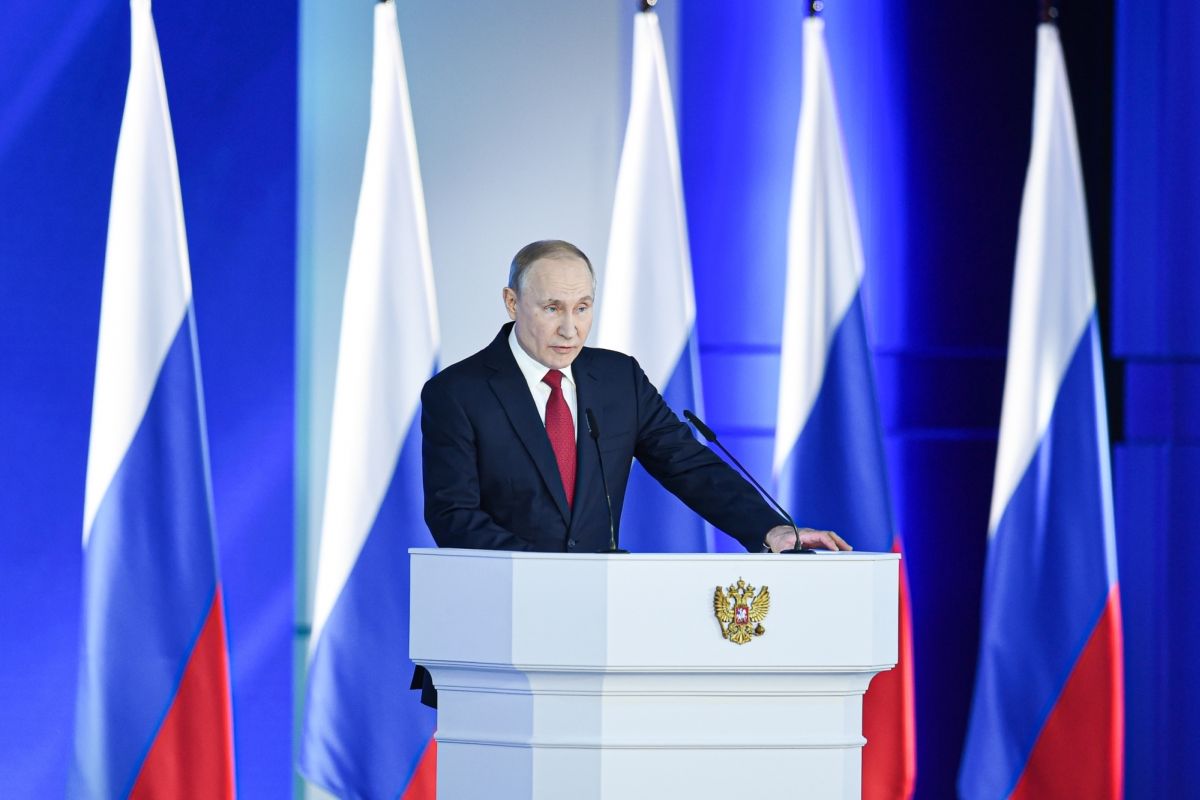Russia to deploy Oreshnik missile systems in Belarus
Russia will deploy its Oreshnik missile systems in Belarus in accordance with the agreements reached between the leaders of the two countries, a senior Russian diplomat confirmed on Tuesday.
There were no Kremlin-critical voices in the house as the reform passed with 432 in favour, no abstentions and no votes against.

Russian President Vladimir Putin (Photo: IANS)
Russian President Vladimir Putin on Thursday fast-tracked work on constitutional changes that could keep him in power well past the end of his term in 2024 while lawmakers quickly sealed his choice for new prime minister.
On Thursday, some 432 of 450 lawmakers backed the package of reforms and now have 15 days to suggest modifications before second reading, Efe news reported.
Advertisement
Once approved by both Houses of Parliament, the reforms will, in theory, go to a referendum.
Advertisement
Sergey Neverov, the leader of the pro-Kremlin United Russia party said, “I am calling on everyone to support in the first reading the important changes to the Constitution proposed by our national leader Vladimir Putin.”
They did so, in just two hours.
There were no Kremlin-critical voices in the house as the reform passed with 432 in favour, no abstentions and no votes against.
On January 16, Putin proposed shifting major powers from the presidency to the State Duma, the lower house of the country’s Parliament, including to choose the country’s Prime Minister and other ministers.
Officials have tried to highlight the social policies in the proposed changes, the guarantees on minimum wage and pensions.
The resignation of Prime Minister Dmitry Medvedev — a longtime Putin ally came after the president used his annual state of the nation address to propose a package of constitutional reforms that would strengthen parliament’s role.
Duma Chairman Vyacheslav Volodin congratulated lawmakers on demonstrating unanimity and urged them to replicate it in the second reading in just over two weeks.
However, critics have taken aim at the rush and the lack of transparency surrounding the reform package, which Putin announced last week in his state of union, prompting the resignation of his Prime Minister Dmitry Medvedev, who made way for the sweeping changes to the balance of power.
Opposition figure Alexei Navalny, who is banned from holding office, said: “Our authorities like to take the population for idiots, but this time they have surpassed themselves.
The reshuffle has shaken Russia’s political elites, who were left wildly speculating about Putin’s intentions and future Cabinet appointments.
A constitutional reform announced by Putin indicated he was working to carve out a new governing position for himself after his current six-year term ends in 2024, although it remains unclear what specific path he will take to stay in charge.
Speaking to the group that will draft the amendments, Putin emphasized that the changes are intended to “strengthen the role of civil society, political parties and regions in making key decisions about the development of our state.”
Recent polls put Putin’s rating at 68-70 per cent, up a few points from a year ago but down from a high of more than 80 per cent at the time of his last election.
The state of the nation address — delivered in the Manezh exhibition hall next to the Kremlin — is one of three big annual Putin events, along with a marathon press conference and live phone-in where he takes questions from the Russian public.
(With inputs from agency)
Advertisement